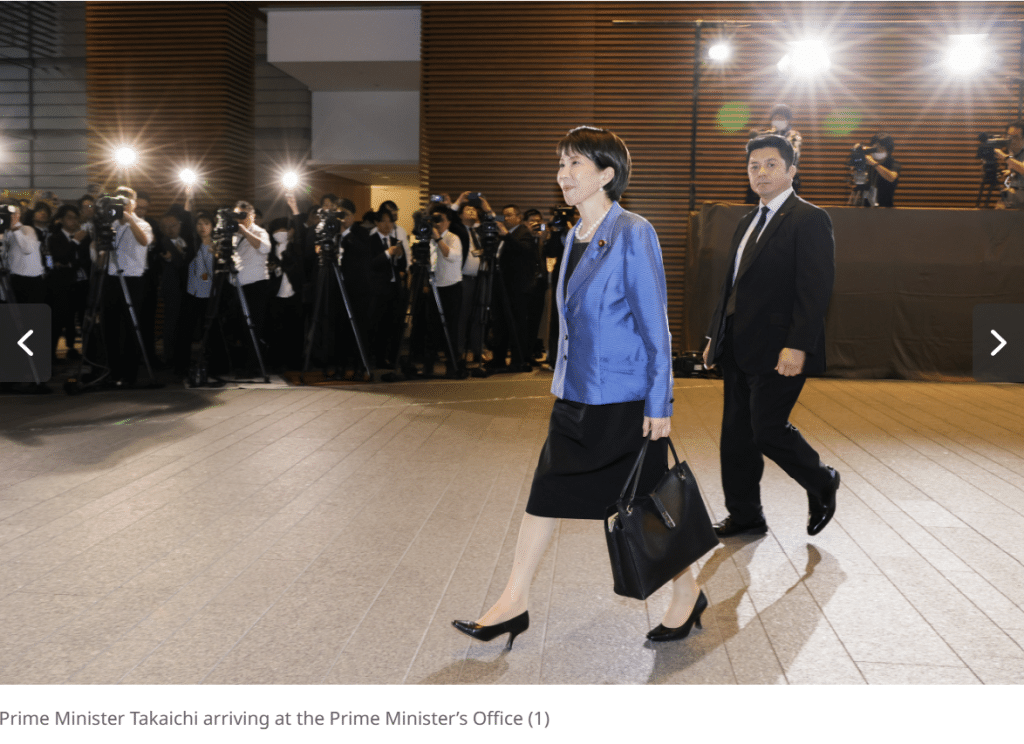The Impact of the Wuhan Coronavirus
On November 16th, 2002, the infamous SARS (Severe Acute Respiratory Syndrome) outbreak began in the Guangdong Province in southern China. It would not be until February 2003 that the Peoples’ Republic of China notified the World Health Organization (WHO) about the ongoing outbreak, which by then had infected over 300 people and would continue to infect thousands of individuals despite containment efforts. It would not be until June 2003 when WHO Director General Gro Harlem declared SARS had been “stopped dead in its tracks”.
The SARS outbreak ultimately infected over 8,000 people and led to over 700 deaths. The impact of the SARS Outbreak has influenced major shifts in Chinese disease control policy and triggered a long debate on government agencies should handle public access to information.
In the aftermath of the SARS Outbreak, the Chinese Government was heavily criticized by the international community for its slow response time in notifying WHO about the situation as well as the government’s initial effort to censor information on the existence of the virus in the early months of the outbreak. WHO and the international community were unaware of the severity of the outbreak until Chinese doctor Jiang Yanyong’s medical report on SARS to Chinese state media was leaked to the Western media. After Jiang’s report went public however, Chinese disease containment policies radically shifted, and by early April Beijing announced that the containment of SARS would become a national focus of the government. Premier Wen Jiabao apologized for the government’s previous failures to both contain the outbreak and make the public aware of SARS.
When the Coronavirus emerged in Wuhan in early December 2019, the Chinese Government’s response remained similar to its approach to SARS in the early 2000s. Experts believe that the virus emerged in Wuhan around early December, but it would not be until late December when Beijing announced the emergence of the new virus and was working with the international community by giving out data to organizations such as WHO. While Chinese disease control capabilities have vastly improved in the past two decades, it is becoming increasingly clear that China has underreported the severity of the outbreak.
At the time of writing (January 30th), there have been over 7,000 reported cases of Coronavirus globally, with 11 other countries reporting cases of infected. China has taken drastic measures to contain the spread of the outbreak, quarantining off the entire city of Wuhan on January 23rd and expanding the quarantine to much of the Hubei Province by the 24th. Over 40 million people are not trapped in the Quarantine zone, making the quarantine of the Hubei Province the largest ever quarantine in human history. However, Wuhan’s mayor has indicated that nearly 5 million residents left Wuhan before the quarantine was imposed, which raises the question of how effective the quarantine is in preventing neighboring cities and provinces from becoming overwhelmed with infected as Wuhan has.
While China’s overall response has vastly improved since SARS, there are still genuine concerns about the lack of transparency as well as the heavy-handed tactics to fight the epidemic in Wuhan. Many fear that Beijing has downplayed the severity of the outbreak, because despite their efforts to control the spread of the disease and their willingness to reveal the emergence of a new virus early into the outbreak, local leaders claim that Beijing did not allow local leaders to release sensitive information about the nature of the outbreak. There are also legitimate claims that Beijing concealed the extent of how far the virus spread from the Chinese public. Officially, the data released by Beijing implies that the virus began in Wuhan but managed to spread to Japan and Thailand before it infected any neighboring cities in Hubei. Chinese social media has ridiculed the likelihood of this claim, and some have sardonically dubbed Wuhan’s Coronavirus a “patriotic virus more interested in infecting people overseas than other Chinese.” As the virus spreads, China has severely damaged its citizenry’s trust in the government by arresting or penalizing eight WeChat users accused of spreading disinformation. China’s social media networks have revealed the fury of the Chinese public, as WeChat users have posted memes mocking local officials in Wuhan for incorrectly wearing their medical masks as well as commenters demanding that Wuhan Mayor Zhou Xianwang resign in live streams.
As authorities struggle to contain the outbreak, data by both the Imperial College of London and Northeastern University in Boston suggests that the virus has infected far more than officially reported both within China and globally. Researchers at the Imperial College of London estimate that between January 12th and January 18th, there were likely 4,000 infected individuals in Wuhan alone. Northeastern University researchers meanwhile believe that over 20,000 have been infected globally by the virus by January 26th. The public health implications are severe, with some such as Professor Neil Ferguson, a public health expert at the Imperial College, estimating that as many as 100,000 have already been affected by the virus. Experts are unable to determine precisely how contagious the virus is as it continues to mutate, so making accurate estimates of how many will be infected has become difficult.
While it is too early to assess any potential economic damage that the spread of the Wuhan Coronavirus will bring, it has emerged at an inopportune time for China. China’s economy continues to maintain an impressive growth rate of 6.1 percent despite the ongoing trade war with the United States, but economically China is the most fragile it has been in decades. Tourism has significantly declined in the days following the outbreak of the Coronavirus in Wuhan, and many countries such as the United States have discouraged its citizens from visiting the Hubei Province and even China as a whole. Meanwhile, the Economist Intelligence Unit released a report on January 23rd, predicting that the Wuhan virus could take off between 0.5 to 1 percentage point off China’s gross domestic product growth (GDP) this year against a baseline forecast of 5.9 per cent. The Economist Intelligence Unit summarizes:
The viral outbreak will have a negative effect on most business sectors. Those hit hardest will include logistics, travel and tourism, as well as labour-intensive industries. Health- and life-insurance companies could see their costs go up, although in the long term they might benefit from increased awareness among the public about the benefits of purchasing insurance.
However, Wuhan and the quarantined cities of the Hubei Province will bear the brunt of the economic fallout of the containment efforts. Wuhan, called the “thoroughfare of China”, acts as a transport and industrial hub for China and is the region’s political, economic and commercial center. It’s isolation to prevent the spread of the virus will greatly harm economic growth of the city and its neighbors for months to come.
Internationally, the spread of the Coronavirus has become politicized. Chinese diaspora communities all across the world have become targets of both mockery and persecution. For example, an online petition from Ontario, Canada, is currently in circulation that demands students who traveled to China in the last 17 days be prevented from attending school. Comments on the petition included racist claims such as “Quarantine all Chinese until the Chinese virus is gone” and “Stop immigrating Chinese to Canada…Minister of Immigration should block immigration of Chinese people now.” Anti-Chinese sentiment is not limited to Europe and the Americas, as China’s neighbors such as South Korea and Japan have reported a rise in Sinophobia. Shops in both South Korea and Japan have begun displaying “No Chinese allowed” following reports that the Coronavirus had spread to the respective countries.
In many ways, the anti-Chinese sentiments that emerged from the spread of the Coronavirus signify how many of the twisted racist stereotypes of China and Chinese culture remain. The stereotype that China remains an uncivilized, “dirty” country with strange, dangerous food cuisines, is one way people have justified why the outbreak began in China rather than elsewhere. Following the emergence of the outbreak, Chinese vlogger Wang Mengyun found herself under attack by a torrent of hate mails. A viral video of her resurfaced from 2016, which showed her eating a bat soup in Malaysia. Clearly the video was not related to the outbreak of the virus at all, as the video was shot years before the outbreak and in a different country, but that did not stop people from attacking her and Chinese culture for its “barbaric” culture.
China CDC experts were aware of the Wuhan virus but did not seem to warn of its severity to the Chinese leaders. Wuhan and Hubei did not enact efforts to deal with the threat posed by the virus until President Xi Jinping reportedly offered remarks in an internal document on the virus on January 20. What has caused the crucial delay in informing and educating the public and containing the outbreak is something the people of China demand and they are entitled to know. While Hubei and Wuhan officials must be held accountable for their failure to address the situation in a timely manner, authorities in Beijing are also responsible for not only creating a culture that discourages public access to information but also for not authorizing local officials to release information as early as possible.
The current containment measures as well as the willingness of Beijing to go public as soon as the virus was identified to be a significant health hazard showcase how China has gone a long way in disease control measures and strategies, yet it appears that halting the spread of the virus has become nearly impossible. The lessons of the wild spread of the Wuhan Coronavirus are multiple. First, China’s new and improved disease control and prevention measures post-SARS are powerful enough to allow other nations to prepare for the virus but are not sufficient enough to adequately protect or prepare itself. Second, there seems to be widespread outrageous leadership incompetence and functional paralysis caused by a political culture that favor so-called social stability than public rights to know. Third, while many in the world are in shock to see how the Chinese government could shut down a city of 11 million, they also cannot help but asking how effective the Chinese way of governance is. Should people be doubtful when they hear that the so-called China wisdom and China solutions are offering a miracle approach to different development challenges in the world?








